
Woman picking frozen food at the supermarket ( Image Credit: Freepik)
Frozen food is the mainstay of a modern household because of its convenience, affordability, and longer shelf life, it has gained great popularity in all its forms: from frozen vegetables to ready-to-eat meals. However, people have started growing alarmed over health risks, and frozen food being a probable source of cancer, is of great concern among health-conscious people. The following article delves into scientific studies, expert opinions, and whether frozen food indeed increases cancer risk.
The Process Behind Frozen Food
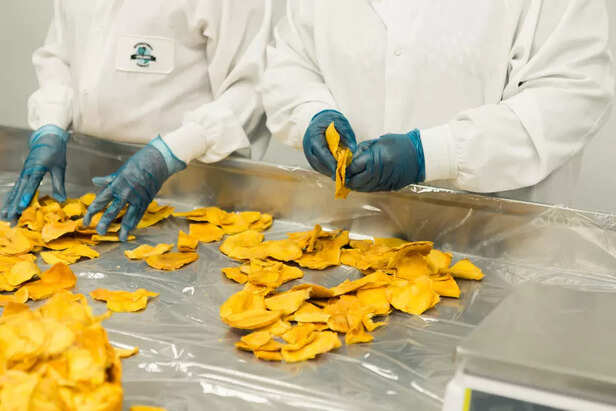
Process of packing frozen food
Frozen food is kept under the preservation process, whereby rapid freezing at extremely low temperatures prevents bacteria growth and maintains the quality of the food. Freezing itself does not pose a health risk, but the preservatives, packaging materials, and methods of processing create concerns. Some frozen foods contain artificial preservatives, flavor enhancers, and stabilizers that might have health implications. Moreover, some frozen food packaging has been known to contain chemicals such as BPA (bisphenol-A) and phthalates, which may leach into food and cause health hazards. Processed frozen meals tend to have high sodium levels, unhealthy fats, and artificial ingredients, which negatively affect health in general.
Scientific Studies on Frozen Food and Cancer Risk
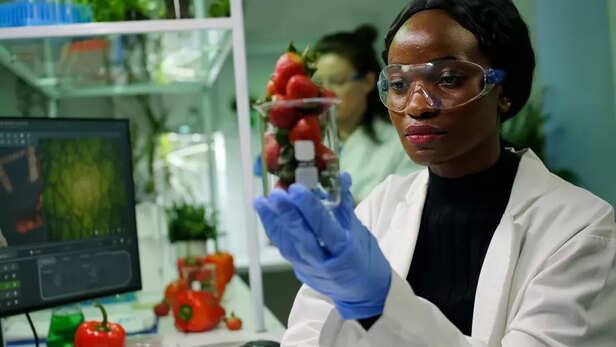
Scientist experimenting of frozen fruits
Scientific studies about frozen food and its direct relation to cancer are not conclusive. However, there are a few studies that bring to light certain concerns.
Preservatives and Additives -Many frozen foods, especially processed meals, contain additives such as sodium nitrate, sodium benzoate, and artificial colorants. A study published in the International Journal of Cancer (2018) found that excessive consumption of processed meats containing nitrates increases the risk of colorectal cancer. According to the American Cancer Society, some artificial colorants and preservatives in frozen foods have been linked to potential carcinogenic effects in animal studies, though human studies remain inconclusive.
BPA and Phthalates in Packaging
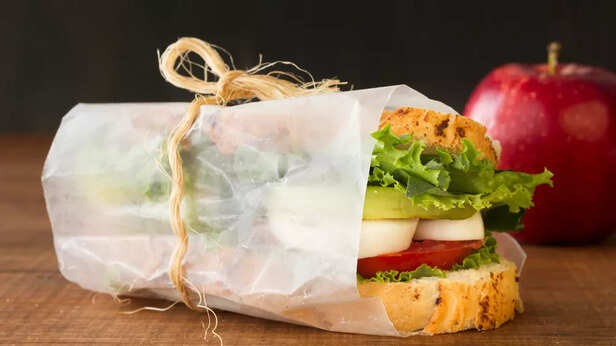
sandwich
Frozen foods are usually stored in plastic boxes, which can contain BPA and phthalates. A Journal of Environmental Science study from 2020 showed that long-term exposure to BPA affects hormone functioning and may contribute to the development of breast and prostate cancer. The National Institute of Environmental Health Sciences warns that BPA and phthalates can mimic estrogen in the body and may increase the risk of cancer.
Acrylamide Formations in Processed Frozen Foods
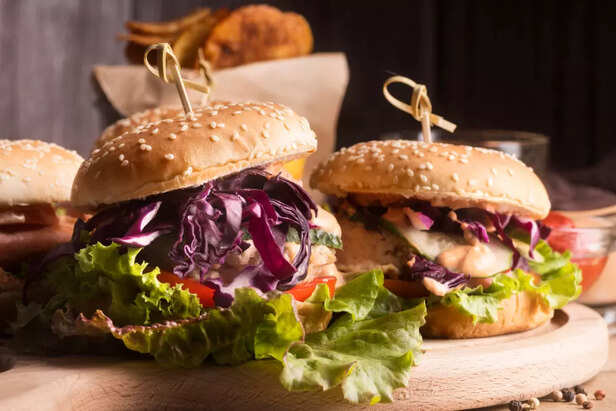
Burger
Acrylamide is a chemical that is formed when starchy foods, such as frozen French fries and breaded chicken, are cooked at a high temperature. According to the European Food Safety Authority, a study shows that acrylamide in fried and baked foods is carcinogenic, but other human studies are needed. The National Cancer Institute further states that while acrylamide exposure from food is lower compared to smoking, frequent consumption of acrylamide-rich foods may pose health risks in the long run.
High Salt and Trans-Fat Intake
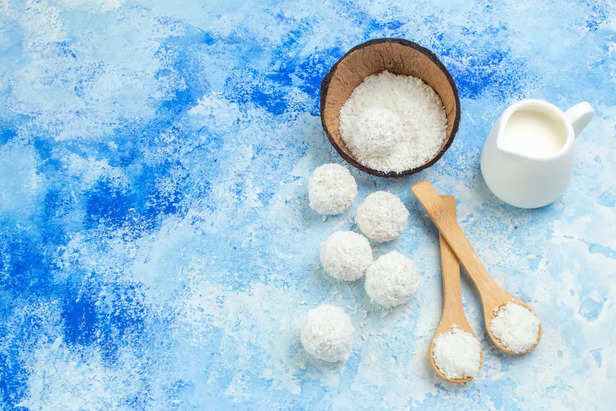
Salt
Most of the frozen products have too much salt and trans fats. Excessive sodium is associated with various chronic diseases and, indirectly contributes to cancer risk. According to WHO, stomach cancer is related to a high intake of sodium. The International Agency for Research on Cancer considers trans fats to be carcinogenically potential substances. These substances are mainly added to fried snack foods and pizzas.
Debunking Myths About Frozen Foods and Cancer
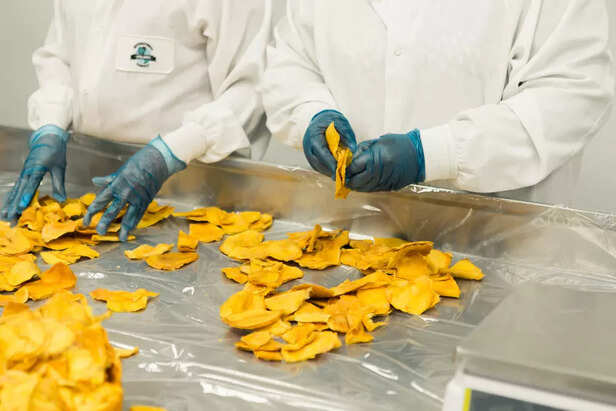
Debunking Myths About Frozen Foods and Cancer
While some concerns exist, it is essential to differentiate between processed frozen meals and natural frozen foods. Studies confirm that freezing preserves nutrients and does not introduce harmful substances, making frozen vegetables and fruits safe and even beneficial for health. Preparing and freezing homemade meals without preservatives is a healthier alternative to store-bought frozen foods. Additionally, avoiding microwaving food in plastic containers and choosing BPA-free packaging can reduce potential risks.
Healthier Frozen Food Choices
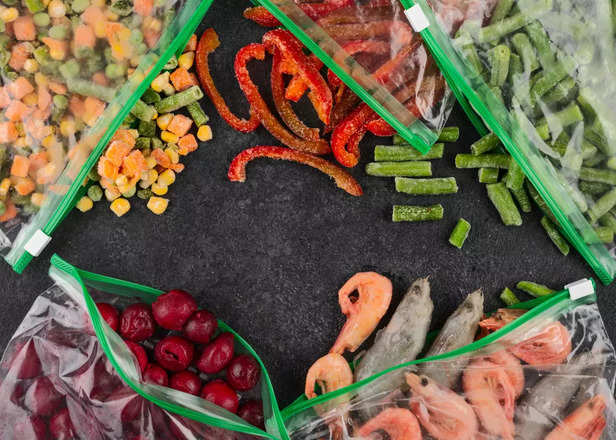
Healthier Frozen Food Choices
To avoid prospective cancer risks, use the following tips:
Read Labels Carefully
Freeze most foods with minimal preservatives, additives, and artificial ingredients.
Freshly Frozen Produce
Keep frozen fruits and vegetables without added sauces or seasonings as a healthier option.
Avoid Processed Frozen Meals
Minimize freezing of pizzas, fried foods, and other packed meals with increased sodium and unhealthy fats.
Use Safe Cooking Methods
Bake or steam frozen foods instead of frying to prevent the formation of acrylamide.
Use Eco-Friendly Packaging Materials
Ensure that food packaging materials used are BPA-free and contain fewer chemicals in them.
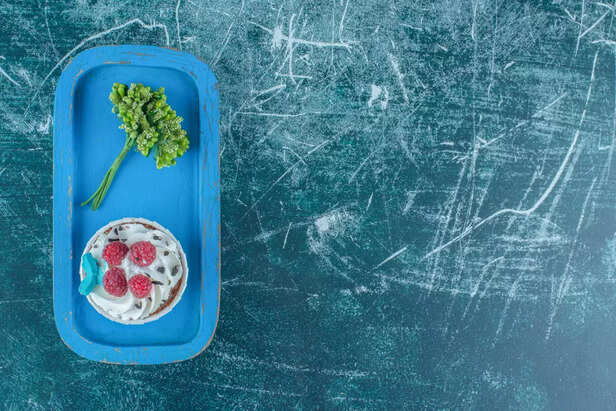
healthy food tiffin
Conclusion
While there have been many associations with components of processed frozen foods and health risks, for instance, some relating to cancers, there is no definitive evidence that frozen foods are bad. It depends purely on choice; be it choosing the less processed frozen foods, avoiding high-sodium and additive-laden meals, and safe storage and cooking practices can ensure no compromises while enjoying the benefits of frozen food.









